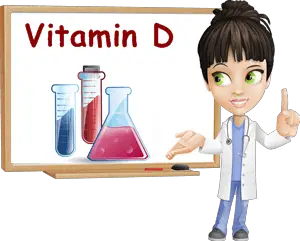Nowadays we are all taught that the sun is dangerous. We are taught that overexposure leads directly to skin cancer, one of the leading causes of death in the past decade. For this reason we must, at all times, wear sunblock or sunscreen. However, the people advising us to cover every inch of our body in sun screen omit to tell us that the sun is our ally as well. Moderate sun exposure is healthy because it supplies us with generous amounts of vitamin D, which is the prerequisite for a healthy body and a healthy mind.
UVB, UVA and IRA rays coming from sunlight are indeed a form of radiation which can be potentially harmful for our body. But so can air and water. Yet we do not stop breathing or drinking water.
A 15-20 minutes exposure of face, arms, neck, chest and even back to sun in spring or summer can supply us with generous amounts of vitamin D for better immunity, better mood and better sleep, among other benefits.

The continuous use of sun screen blocks vitamin D production and thus dispossesses our body of a crucial nutrient, at the same time inhibiting its beneficial action if any sunlight gets through. Sunscreen lotions are recommended when going to the beach or spending time outdoors, especially in a strong afternoon sun. They need to be reapplied at regular intervals and we have to make sure they offer complete protection (broad spectrum sunscreens).
However, using sunscreen every time you go out the door can be as harmful for our health as much as sunbathing until we get redness, burns and blisters.
There are numerous factors to take into account when it comes to getting our vitamin D through sun exposure. Fair skin lets more sun radiation get through, so it enjoys an increased vitamin D production. However, fair skin can also get burnt more easily, so exposure to sunlight is often limited. Dark skin has more melanin which protects it from sunlight radiation. This is good because it means it is better protected against skin cancer.
At the same time, because it lets less sunlight get through, its vitamin D production is believed to be lower than that of fair skin for the same amount of sun exposure.
Also see what are the benefits of melanin.
Luckily, as little as 15-20 minutes of sun exposure can provide even all complexions with all the vitamin D they need for an entire day. Sun exposure is the first and most important source of vitamin D, a nutrient with extensive roles in all aspects of health. Dietary sources alone do not even come close to providing adequate amounts of the vitamin. Studies reveal the range of health effects vitamin D exerts and its rather outstanding benefits.

What are the benefits of vitamin D?
- Better energy levels, better mood due to the release of endorphins (molecules similar to proteins which induce an euphoric state).
- Pain relief in people suffering from fibromyalgia (a condition that causes widespread body pain).
- Treatment of skin conditions such as psoriasis, vitiligo, atopic dermatitis and scleroderma (skin hardening).
- Melatonin adjustment for improved sleep at night and better productivity during the day (regulation of circadian rhythms).
- Faster wound healing owed to antimicrobial properties and immune system modulating effects.
- Better cardiovascular health via regulation of magnesium and calcium metabolism.
- Potential benefits for multiple sclerosis (some degree of symptoms management).
- Anticancer activity thanks to strong immune system modulating properties.
- Stronger immune system response, supported by adequate intakes of vitamins C and A, and zinc.
- Improved fertility in women via regulation of hormone production – there are receptors for vitamin D in the ovaries and uterus, not just skin.
Vitamin D deficiency symptoms
Low vitamin D levels can be caused by either poor exposure to sunlight, overuse of sunblock lotions or can be a consequence of a poor diet, lacking vitamin D-rich foods. If you suspect you may have a deficiency, talk to your doctor. He or she can recommend a simple blood test which will indicate your exact levels of vitamin D and propose a personalized supplementation plan. Vitamin D is usually recommended in combination with calcium and magnesium, especially in the case of a calcium deficit. While vitamin D increases calcium absorption, magnesium helps fix it in bones and teeth where it’s needed (rather than joints, for example).
One way to convince yourself of how important vitamin D is for human health is to observe you behavior and general state of health. You might notice an increase in energy levels and vitality during sunny days and lethargy, apathy and even unexplained sadness during rainy or gloomy winter days. In addition to getting enough sun, it is best to also supplement your diet with vitamin D-rich foods such as milk, dairy, mushrooms, duck eggs, goose eggs and some fish and seafood.
Conditions associated with low vitamin D blood levels
- Poor mood, frequent feelings of sadness, lethargy, depression disorder.
- Early cognitive decline in the case of the elderly.
- Severe asthma in children, exacerbated by an increasing number of factors.
- High death risks due to cardiovascular disease.
- Poor overall immunity with frequent respiratory and other types of infections and long recovery times.
- Susceptibility to chronic diseases such as cancer.
- Reduced fertility in women with poor pregnancy outcomes, increased time until pregnancy is achieved, and even infertility.
- Rickets with bone demineralization, defective bone growth, bone deformities.
Conclusion
If you are fair-skinned, only 15-20 minutes under direct sunlight can supply you with generous amounts of vitamin D. If you have a darker complexion, then you might need just as much or up to 6 times more sun exposure to meet your vitamin D needs. Fair skin absorbs sunlight a lot easier due to it having less melanin, hence its sensitivity, but also higher risks for sunburns. But both fair and dark-skinned people are advised to be careful with sun exposure and wear appropriate SPF products when enjoying time under the sun.
